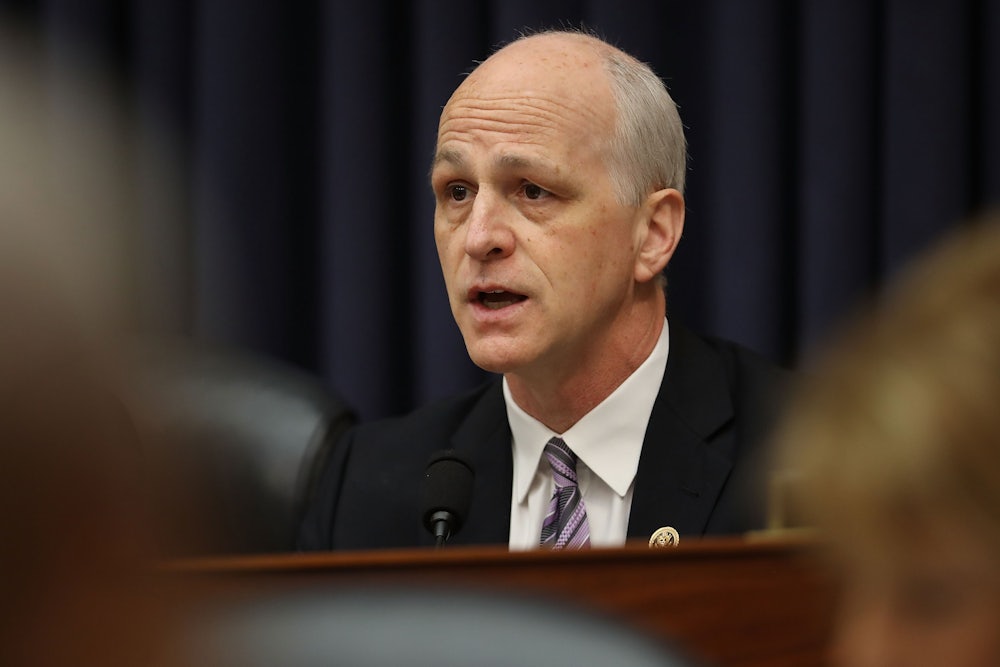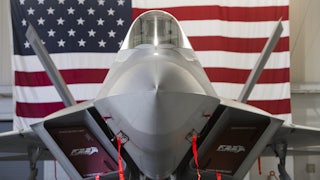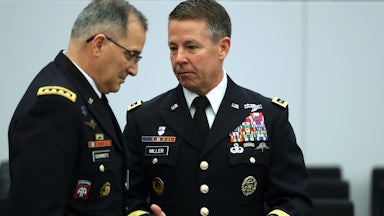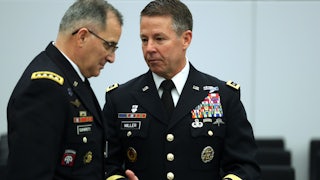The war in Afghanistan formally ended on Tuesday, capping two decades of a multitrillion-dollar conflict overseen by four presidents and spurred on by a generation of generals and politicians who frequently misled the public, resulting in the deaths of more than 2,400 American soldiers and tens of thousands of Afghans. The last U.S. planes departed a few hours before dawn, leaving behind destroyed munitions and equipment, as well as a war-torn country that now has more territory controlled by the Taliban than it did before the terrorist attacks of September 11, 2001.
In a speech on Tuesday, President Joe Biden explained the decision to withdraw troops on August 31, which had been criticized by members of Congress from both parties, as well as many of the actors who championed the war in the government and the media. He defensively offered a laundry list of reasons for the unceremonious exit, including the $2 trillion price tag that accumulated over 20 years.
“What have we lost as a consequence in terms of opportunities? I refused to continue in a war that was no longer in the service of the vital national interest of our people,” Biden said. Findings from Brown University’s Costs of War project released this month estimate that the post-9/11 wars have cost the United States $8 trillion, including $2.3 trillion in the Afghanistan and Pakistan war zone.
Even as one war ends, however, Capitol Hill’s commitment to significant defense spending remains. The House Armed Services Committee is holding a markup of the National Defense Authorization Act, or NDAA, on Wednesday, a marathon hearing that will likely involve votes on dozens of amendments brought forward by Republican members. Markups on the NDAA are infamous for stretching late into the night, and often into the wee hours of the morning. Committee Chair Adam Smith said that there were 780 proposed amendments, although not all of them will receive votes.
Smith’s proposal for the NDAA for fiscal year 2022 would authorize $744 billion in discretionary spending for national defense, with $716 billion allocated for the Defense Department, $27.8 billion for the Department of Energy, and $400 million for “defense-related activities.” Smith’s proposal is less than Biden’s overall proposed budget for discretionary defense spending, which was $753 billion, although it was on par with the request for $715 billion for the Defense Department—a 1.6 percent increase from the enacted budget of $703.7 billion for fiscal year 2021. It is also less than the NDAA proposal adopted by the Senate Armed Services Committee earlier this year, which was $25 billion more than Biden’s proposed budget at $777.9 billion.
The committee approved an amendment to increase the amount by $23.9 billion, to match what passed in the Senate. This proposal was supported by all Republicans and several Democrats, allowing it to prevail over the objections of Smith and progressives on the committee. This amendment, proposed by Committee Ranking Member Mike Rogers, includes an increase in weapons procurement spending by $9.8 billion.
In remarks ahead of the amendment vote, Smith argued that spending more money on defense would not necessarily make the country safer. “Simply throwing more money at the problem does not solve it,” Smith said.
This argument was echoed by some Democrats on the committee, such as Rep. Sara Jacobs, who questioned a vote to increase spending on defense the day after the war in Afghanistan ended.
“So many are concluding that what we need is more weapons and more war,” Jacobs said. “It’s as if we’ve learned nothing from the past 20 years.”
Progressive Democrats had repeatedly criticized the ballooning in defense spending in recent decades, arguing that money would be better spent directed toward domestic programs. But Smith said Tuesday at an event with the Brookings Institution that he does not have “an enormous amount of sympathy” for those arguments, pointing to the large amounts spent this year on coronavirus relief and the proposed $3.5 trillion in new spending on priorities such as health care, child care, and education. The House also approved seven appropriations bills at the end of July amounting to $770 billion.
“I don’t support the argument: ‘Look at the defense budget, oh my gosh we can’t spend another $25 billion because we have all these other priorities,’” he said. “We spend a lot of money on all those other priorities.”
Whether the NDAA is too large or too small, the proposed bill does represent a pivot away from the focus on post-9/11 counterterrorism efforts. There is some mention of Afghanistan, including provisions reaffirming support for Afghan applicants to the Special Immigrant Visa program and authorizing funds related to the costs of winding down the war.
Dozens of amendments to the NDAA have already been considered and adopted en bloc with support from members of both parties. But even as Biden seeks to move on from the conflict in Afghanistan, Republicans are expected to keep the issue at the forefront. Rogers told reporters on Monday that he had roughly 50 amendments lined up to address what Republicans see as a botched withdrawal from Afghanistan, promising a “vigorous debate.”
These amendments could be tough votes for vulnerable Democrats who are already toeing the line of criticizing Biden even as they may need him in the midterm elections. The Washington Examiner reported on Tuesday that these will include proposals designating the Taliban as a foreign terror organization, prohibiting funding to the Taliban, and requiring the administration to provide information on what weapons may have fallen into the hands of the Taliban and create a counterterrorism plan for Afghanistan. As of noon Wednesday, the committee already approved two amendments by unanimous consent that would require quarterly briefings from the administration to Congress on the security situation and threats in Afghanistan.
Smith pushed back against Republican efforts to put the Biden administration on the spot, saying that “if we’re going to honestly look at Afghanistan, we need to look at all 20 years.” “The idea that the only things that went wrong in Afghanistan were decisions Biden made is nuts,” he said.
Despite arguments by Republicans, the official end of the conflict does not mean that all involvement in Afghanistan has concluded; Biden said on Tuesday that the State Department will continue to pursue diplomatic efforts to evacuate any remaining American, Afghan ally, or foreign national who wishes to leave the country. The U.S. military evacuated more than 100,000 people from Afghanistan in the weeks leading to the August 31 withdrawal date, although the exodus was marred by chaos and bloodshed, including a terrorist attack by ISIS-K that killed 13 U.S. Marines and dozens of Afghans.
Biden pledged that the U.S. would “continue to support the Afghan people through diplomacy, international influence, and humanitarian aid.” But he also left the door open to further military action in the country, even without American boots on the ground.
“We will maintain the fight against terrorism in Afghanistan and other countries,” Biden said, touting the “over-the-horizon capabilities” of the American military, such as taking out military targets through drone strikes. The administration authorized a drone strike targeting ISIS-K last week, which may have also resulted in the deaths of several civilians, including children.
“To those who wish America harm, to those that engage in terrorism against us and our allies, know this: The United States will never rest. We will not forgive. We will not forget. We will hunt you down to the ends of the earth, and you will pay the ultimate price,” Biden said.
* This post refers to a breaking news event and has been updated.








